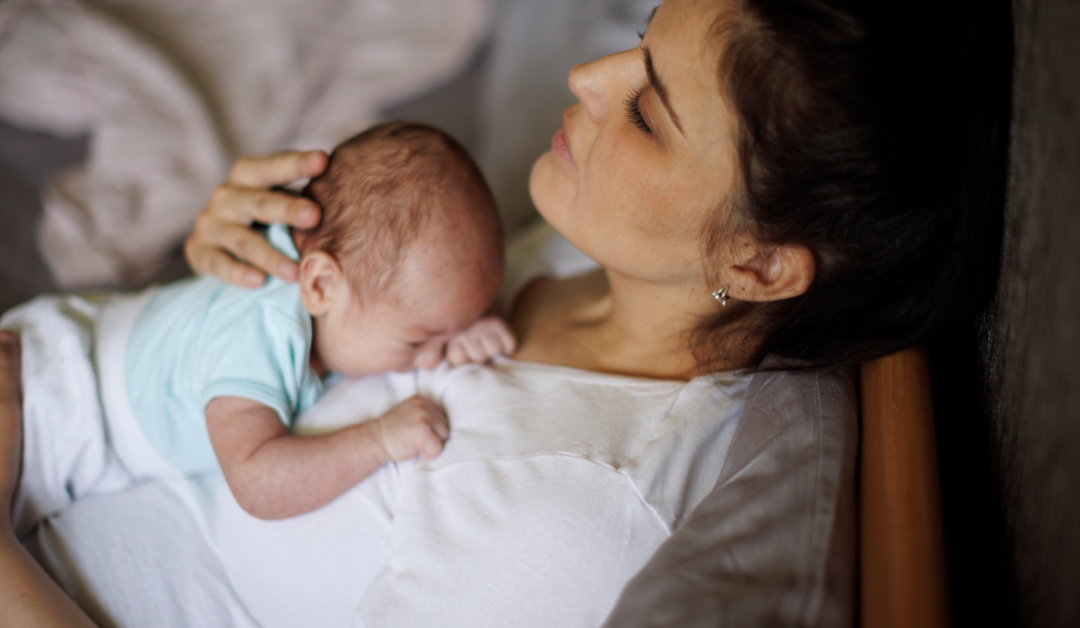We’re diving into the signs of postpartum depression, how it differs from those pesky baby blues, and when it’s time to reach out for help.
Let’s face it: having a baby is a wild ride! You’ve got this tiny human who relies on you for everything, and while that can feel like the most magical experience ever, it can also be downright overwhelming.
The joy, love, and sometimes sheer exhaustion can swirl around, leaving many new moms feeling like they’re on an emotional rollercoaster.
But here’s the thing: while many moms experience the “baby blues,” some may find themselves facing something a little more intense—postpartum depression.
So, let’s break it down, shall we?
What Are Baby Blues?
First things first, let’s chat about those baby blues.
After giving birth, it’s not uncommon to experience a range of emotions, and for many, it can feel like you’re on a seesaw of happiness and sadness.
The baby blues typically kick in around the third day after delivery and can last up to two weeks. It’s characterized by feelings of sadness, irritability, anxiety, and fatigue.
You might find yourself crying over a cute baby outfit or feeling overwhelmed just thinking about changing yet another diaper.
But here’s the silver lining: the baby blues usually don’t last long.
They’re a natural response to the massive hormonal changes your body is undergoing and the adjustments you’re making as a new parent.
The good news is that, for most women, these feelings will lift within a couple of weeks as your hormones stabilize and you find your groove in this new role.
What is Postpartum Depression?
Now, let’s talk about the other side of the coin: postpartum depression.
This isn’t just the baby blues ramped up; it’s a serious condition that can affect about 1 in 7 women after childbirth. Postpartum depression can develop anytime within the first year after giving birth, and its symptoms can last much longer than the baby blues.
The signs of postpartum depression can be a lot heavier. You might feel persistent sadness, hopelessness, and worthlessness.
Some women experience intense anxiety, panic attacks, or intrusive thoughts about harming themselves or their baby.
It’s not just feeling a little blue; it’s feeling like you’re stuck in a dark cloud that doesn’t seem to lift.
Signs of Postpartum Depression
So, how can you tell if what you’re feeling is more than just typical baby blues? Here are some common signs of postpartum depression to watch out for:
- Persistent Sadness: If you’re feeling sad or down most of the time, and it’s been weeks, that’s a red flag.
- Loss of Interest: Not enjoying things you once loved—like your favorite show or a coffee date with friends—can indicate something more serious.
- Changes in Sleep Patterns: This can go both ways. Some moms find it hard to sleep even when the baby is asleep, while others may sleep excessively but still feel tired.
- Appetite Changes: Either eating too much or not being able to eat at all can be a sign.
- Anxiety and Panic Attacks: Feeling constantly anxious or having panic attacks that disrupt your daily life can signal postpartum depression.
- Feelings of Guilt or Worthlessness: Many women struggle with feelings of inadequacy after childbirth. If you find these feelings overwhelming and persistent, it’s time to seek help.
- Difficulty Bonding: If you’re struggling to connect with your baby or feeling detached, it’s essential to talk to someone.
- Thoughts of Harm: If you ever have thoughts of harming yourself or your baby, this is a serious matter. It’s critical to seek help immediately.
When to Seek Help
If you’re noticing several of these signs lasting beyond a couple of weeks, it’s crucial to reach out. Talking to a doctor, therapist, or trusted friend can help you navigate these feelings.
Remember, you are not alone, and there is support available.
FAQs About Postpartum Depression
Let’s tackle some frequently asked questions to clarify what postpartum depression really means:
What does postpartum depression feel like?
Postpartum depression can feel like a heavy blanket of sadness that just won’t budge. You might feel an overwhelming sense of hopelessness, exhaustion that doesn’t fade, and a constant worry that you just can’t shake off.
It’s okay to feel these things; they are signals that you deserve support.
How long does postpartum depression last?
For some women, postpartum depression can last for months or even up to a year if left untreated. The key is to seek help; there are effective treatments available that can help you feel like yourself again.
What are the symptoms of postpartum baby blues?
The symptoms of baby blues typically include mood swings, tearfulness, irritability, anxiety, and trouble sleeping.
Unlike postpartum depression, these feelings are usually temporary, resolving within two weeks.
What is the 5 rule for postpartum?
The “5 Rule” is a handy guideline suggesting that if you experience five or more symptoms from the postpartum depression checklist for five or more days, it’s time to seek help. Your mental health matters, and it’s crucial to address any concerns.
Conclusion
Navigating the world of new motherhood can feel like a whirlwind, but understanding the signs of postpartum depression and how it differs from the baby blues is essential.
If you or someone you know is struggling, don’t hesitate to reach out for support.
Remember, you are not alone in this journey! The path of motherhood is filled with ups and downs, and it’s completely okay to ask for help along the way.
Your feelings are valid, and seeking help is a sign of strength.
Let’s continue to create a world where we lift each other up, share our stories, and support one another through the beautiful and challenging moments of motherhood.
You’ve got this.

